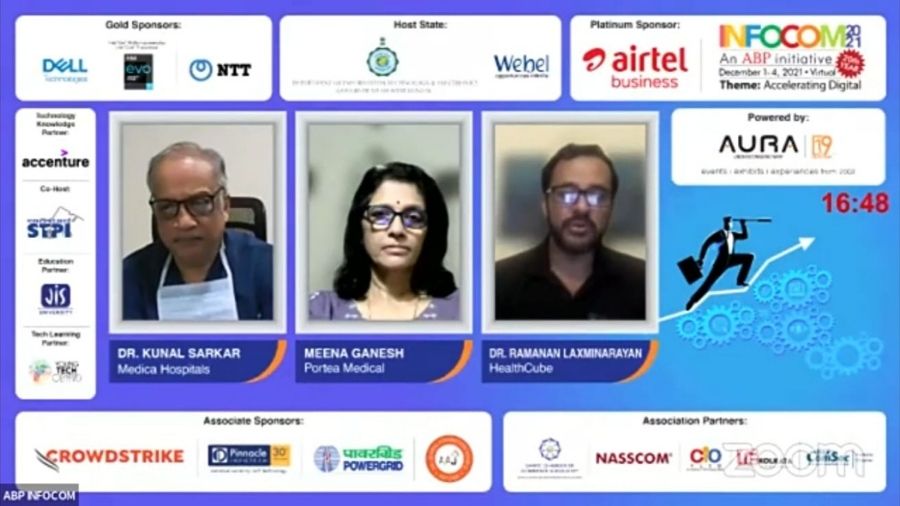A sustainable healthcare model should look at protecting people from financial distress during sickness, an epidemiologist said at a virtual session on sustainable healthcare on Friday.
“We always look at the National Health Service in the UK as being some sense of a model of what a sustainable healthcare system looks like. The first two pages of the act that establishes the NHS say nothing about improving health. That was not the objective. The objective was to protect people from financial distress in the time of ill health. That is something we have miserably failed to do in our country,” said Ramanan Laxminarayan, founder-director of the Centre for Disease Dynamics, Economics and Policy, Washington.
Laxminarayan, senior research scholar at Princeton University, was speaking at the spotlight session, “Sustainable Healthcare in the Post-Pandemic World”, at Infocom 2021, an ABP initiative.
He is also the founder of HealthCube, a start-up that makes portable instruments that can conduct multiple tests with the help of an android-based application.
Kunal Sarkar, chief cardiac surgeon, Medica Hospitals Pvt Ltd, debater and raconteur and moderator of the session, asked him about two “apparent contradictions”, private sector and primary healthcare in India.
The bulk of healthcare financing “allegedly” happens through the private sector in the country, said Sarkar.
“The private sector wants to keep away from primary healthcare. How do you marry that apparent contradiction in our ever-confused healthcare delivery mechanism?” he asked.
Laxminarayan said the economics of primary healthcare was weak in countries where people could not pay for it and the government did not have a role in it.
To him, technology seemed the best long-term solution.
“As someone studying health and looking at it from a system’s perspective, we really don’t have much of an alternative to using technology. There are not enough number of physicians to offer primary care. We need a bionic arm on top of physicians so that every physician in primary care can handle 100 patients a day, not just 20. We can’t afford to do it that way,” he said.
Meena Ganesh, co-founder and MD of Portea Medical and the other panelist, said the pandemic phase was chaotic.
Portea provides home healthcare services.
“It was chaos. Our role had changed… not just monitoring people but jumping into the frying pan. We provided thousands of people with oxygen and critical care support. In a different condition, these people would have been shifted to hospital,” said Ganesh.
The dynamics of the sector are changing, she said.
“Hospitals are coming up, wanting to work with us. Like taking care of a cancer patient, between two rounds of chemotherapy.”
